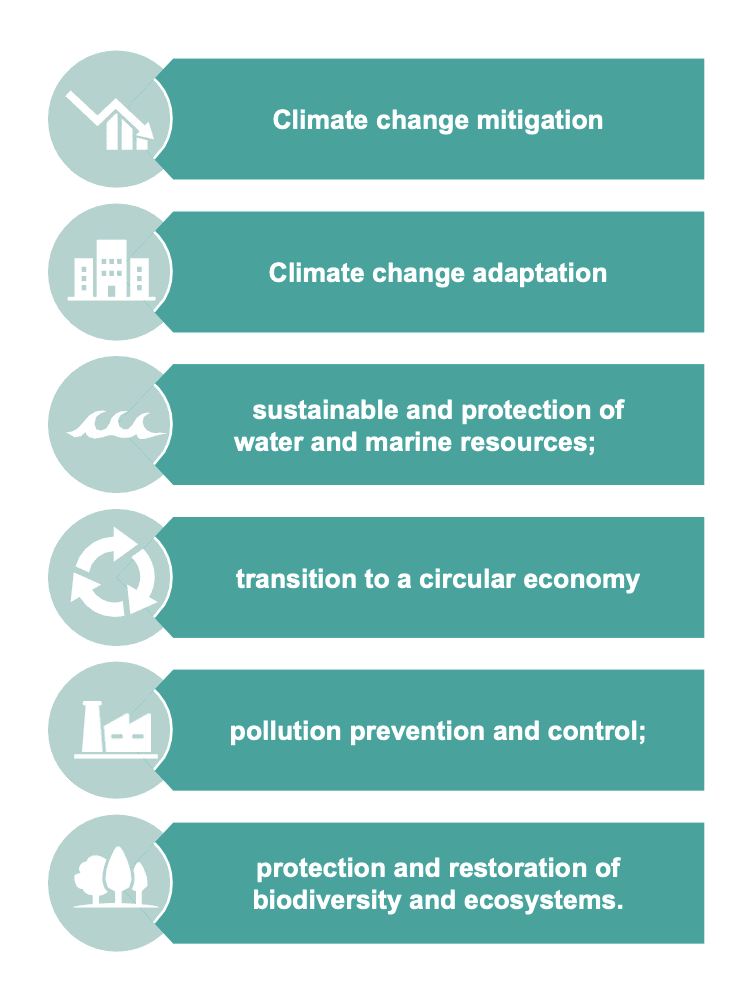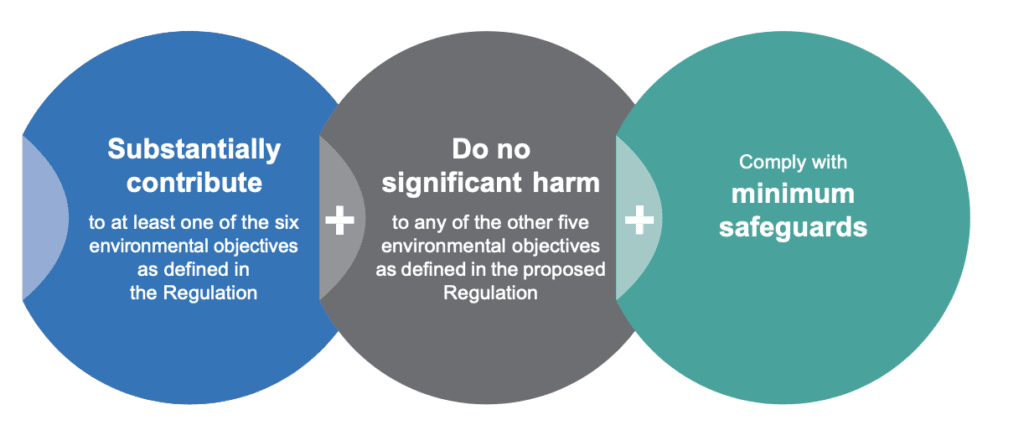The European Green Deal
The European Green Deal was presented by the end of 2019, and slowly rolled out and introduced throughout the EU in 2020.
The European Green Deal can be described as the following: “The European Green Deal provides a roadmap with actions to boost the efficient use of resources by moving to a clean, circular economy and stop climate change, revert biodiversity loss and cut pollution. It outlines investments needed and financing tools available, and explains how to ensure a just and inclusive transition.”
In short: it’s ambitious.
It’s the EU’s vision on becoming the first climate-neutral continent by 2050. And for now, the first main climate target has been set in the EU’s first-ever Climate Law: to reduce greenhouse gas emissions by at least 55% by 2030. Other key targets include:
- At least 40% cuts in greenhouse gas emissions (from 1990 levels)
- At least 32% share for renewable energy
- At least 32.5% improvement in energy efficiency
The Green Deal includes new rules for everyone: countries, sectors, companies, financial markets & institutions, and finally; consumers.
Think of new policies and strategies that ensure the establishment of a circular economy, sustainable food systems, affordable clean energy, reducing loss of biodiversity and sustainable transport systems.
But… Will it affect me too?
The EU’s Green Deal is a vision and decision that will effect everyone- including our Dutch economy.
The EU has very ambitious goals, that will most likely have major structural implications for the EU economy and, therefore, the EU member states. It will enforce new rules and standards on or energy consumption, the way we travel and the food we eat.
But this also means: opportunities.
In order to support this sustainable transition within the EU, at least a €100 billion has been mobilized for sustainable investments over the period 2021-2027.
And the Green Deal will only keep on evolving.
This means that if an industry or company is ready/well placed for this transition, this will enable large opportunities regarding investments related to policy areas in the Green Deal. Indeed, an understanding of these new/adjusted policies will be crucial in the analysis and decision making of investors.
So how can you make sure you’re ready?
The EU Taxonomy
You have to use (follow) the EU Taxonomy.
The EU Taxonomy in the Green Deal is the real deal.
It is a classification tool aimed at investors, companies, and financial institutions to define the environmental performance of economic activities across a wide range of industries, and sets requirements corporate activities must meet to be considered sustainable.
It sets performance thresholds for economic activities that make a significant contribution to one of the six environmental objectives as seen in Image 1.

With the Taxonomy, the EU wants to promote companies, project promotors and issuers to improve their environmental performance, identify what they’re already doing well, and help them access sustainable financing. It also rates if companies ‘Do No Significant Harm’ (DNSH).

Although the main workload for implementation will be for financial institutions and other capital providers, there will still be data points needed for companies to deliver to their capital providers.
It is estimated that more than 20.000 companies in the EU are likely to be asked for these data points soon- as the implementation date for financial institutions is December 31st, 2021. Companies simply need to be ready to provide answers to the requirements of the Taxonomy.
An explanation of the Taxonomy, some examples on how to apply the Taxonomy to your company, and a summary of the entire Taxonomy can be found in the document below.
Your main takeaway – Article 8: buckle up for LCA!
Your main takeaway from the Green Deal?
Get your organization prepared for life cycle assessments. It will not only help you to fulfill the EU taxonomy requirements. It will also help to build a future proof organization and to materialize strategic business opportunities. The transition to a circular, low carbon economy will happen.
And here’s why.
Article 8 of the Taxonomy Regulation requires non-financial undertakings (i.e. companies) to disclose the proportion of their turnover derived from products or services associated with environmentally sustainable economic activities and the proportion of their capital and operating expenditure related to assets or processes associated with environmentally sustainable economic activities.
Indeed- within the Taxonomy, the EU places emphasis on Life Cycle Methods and states that Life-Cycle methods define substantial contribution to the circular economy. More specifically, the TEG (Technical Expert Group on Sustainable Finance), which created the Taxonomy- place high value in life-cycle considerations throughout their technical framework and express this in the following way:
“Life-cycle considerations have been part of the TEG’s analysis since the inception of the project. To the extent feasible, given methodological and data developments, the TEG has sought to consider impacts over the whole life cycle of economic activities. In some cases, the TEG has indicated that a life-cycle metric is the preferred metric and that it should be adopted as soon as is feasible. The inclusion of life-cycle considerations in the legal text ensures that future Taxonomy technical screening criteria will incorporate life-cycle considerations. The treatment of life-cycle considerations is specified for individual economic activities in the relevant technical screening criteria.”
So buckle up: LCA’s are part of Europe’s Green Future.
We’re definitely ready- are you too?
Become future-proof, request a demo below.

